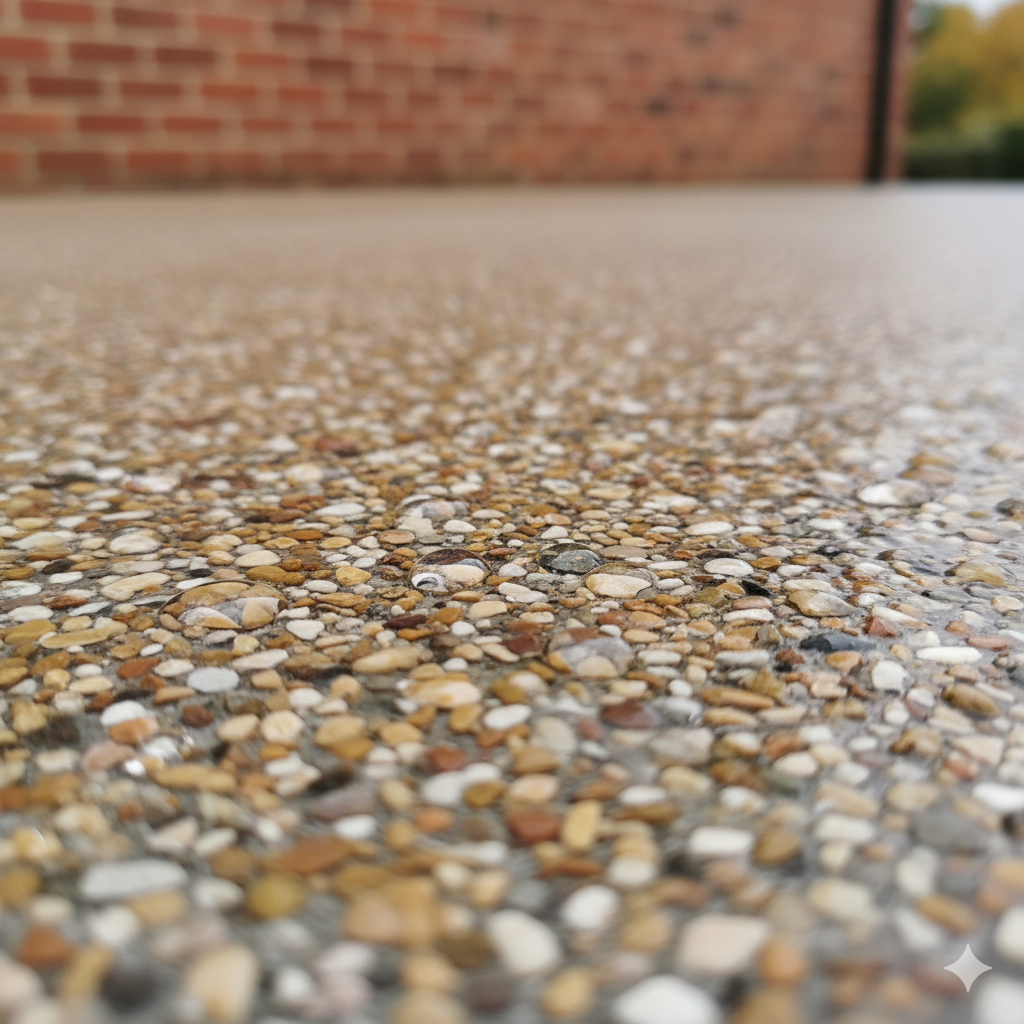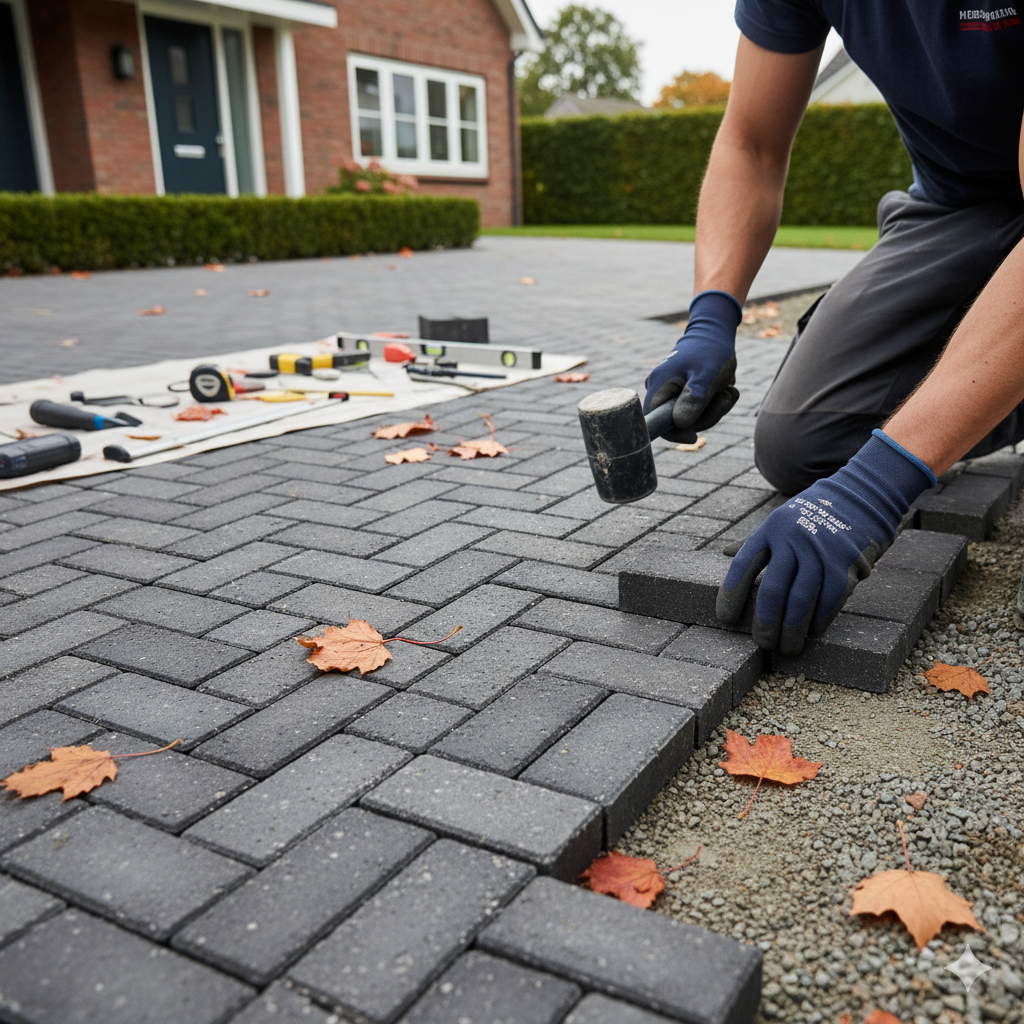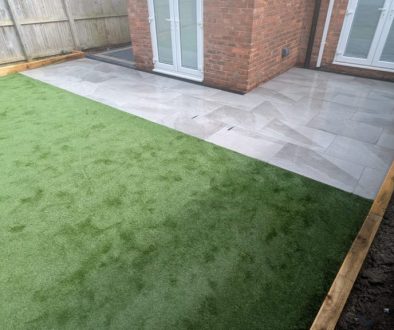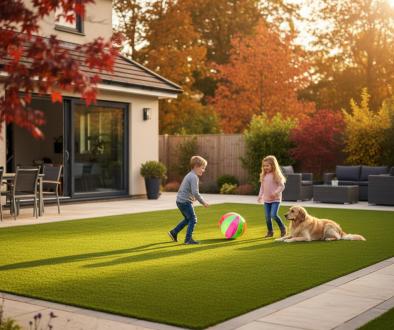Resin vs Block Paving: Which Surface Handles Northeast Weather Best?
When choosing a new driveway for your North East home, the local climate should play a major role in your decision. Between heavy rainfall, frost, and seasonal temperature swings, the region demands a surface that looks good and holds up against tough weather conditions.
Two of the most popular choices — resin-bound and block paving—each offer distinct advantages. Both can deliver stunning kerb appeal, but they perform differently when faced with the North East’s damp, cold, and unpredictable climate. Understanding their differences helps homeowners choose a driveway that not only enhances their property but also lasts for years with minimal upkeep.
Understanding the North East Climate Challenge
Driveways in the North East face constant exposure to rain, frost, and occasional snow. These conditions test both the drainage and durability of any surface. During winter, water can freeze within small gaps, expanding and causing cracks or displacement. In summer, UV exposure can fade poorly protected materials.
Because of this, the best driveway surfaces are those that can handle moisture, resist shifting, and maintain their structure through freeze-thaw cycles. Resin-bound and block paving both meet these requirements to varying degrees—but their strengths and maintenance needs differ.
Resin Driveways: Modern, Smooth, and Weather-Resistant
Resin driveways have become a modern favourite among North East homeowners seeking a sleek, low-maintenance option. Created by mixing natural aggregate stones with a strong, clear resin binder, the result is a smooth, porous surface that is both durable and visually appealing.
Key Benefits of Resin in Cold and Wet Conditions
- Excellent Drainage:
Resin-bound systems are fully permeable, allowing water to pass through the surface rather than pooling on top. This makes them ideal for areas prone to heavy rainfall, reducing the risk of puddles and surface water damage. - Crack Resistance:
Resin has a flexible structure that adapts to minor ground movement. This flexibility helps prevent the cracking that can occur with more rigid materials during freeze-thaw cycles. - Minimal Maintenance:
Weeds and moss find it difficult to grow through resin surfaces, and routine maintenance usually involves just sweeping and occasional pressure washing. - UV Stability:
Modern UV-stable resins resist fading, meaning your driveway retains its colour and finish over time—even through bright summers and grey winters. - Safety Underfoot:
The textured finish of resin offers good grip, even when wet, reducing slip risks during icy mornings.
Overall, resin driveways perform exceptionally well in the North East climate, offering consistent drainage, a modern appearance, and low long-term upkeep.

Block Paving: Traditional Charm and Long-Term Strength
Block paving remains a timeless choice for homeowners who prefer a more classic, patterned appearance. It’s especially popular for properties that value design versatility and the ability to repair small sections easily.
Made from individual bricks or concrete blocks laid over a compacted sub-base, block paving allows for creative designs, from simple herringbone patterns to detailed borders. While it’s not as inherently flexible as resin, proper installation ensures lasting strength and visual appeal.
Advantages of Block Paving in the North East
- Durability and Load-Bearing Strength:
When installed correctly, block paving can easily handle frequent vehicle traffic and heavy loads without cracking. Its modular structure distributes pressure evenly, reducing the risk of surface damage. - Easy Repairs:
Unlike resin, where the whole section might need resurfacing, individual blocks can be lifted and replaced if damaged—ideal for long-term maintenance. - Classic Aesthetic Appeal:
The texture, pattern, and colour options make block paving suitable for both traditional and modern homes. With hundreds of design combinations, homeowners can create a unique driveway look. - Drainage Options:
Permeable block paving designs are available, allowing water to pass between the joints and into the sub-base—helping prevent standing water. - Longevity:
With proper care, a well-laid block paved driveway can last 20 years or more. Occasional re-sanding and cleaning are all that’s needed to keep it in top shape.
Block paving combines visual charm with proven durability, but its weather resistance depends heavily on correct installation and ongoing care.

Head-to-Head: Resin vs Block Paving Performance
To make the right choice, it helps to compare the two materials directly in the areas that matter most to North East homeowners.
Feature | Resin Driveways | Block Paving Driveways |
Weather Resistance | Flexible and crack-resistant during freeze-thaw cycles | Strong but can shift or crack if not properly supported |
Drainage | Fully permeable, prevents standing water | Permeable varieties available; standard versions require additional drainage |
Maintenance | Very low—simple sweeping or washing | Requires re-sanding and occasional weed removal |
Lifespan | 15–20 years with minimal upkeep | 20+ years with periodic maintenance |
Repairs | Whole sections may need resurfacing | Easy to repair individual blocks |
Aesthetic Flexibility | Smooth, modern finish with various colours | Highly customisable patterns and borders |
Installation Time | Fast—usually 1–2 days | Longer—can take several days to a week |
Cost | Mid to high range depending on aggregate | Slightly higher due to labour-intensive installation |
Each surface performs well in the North East, but the right choice depends on what you value most—modern simplicity and drainage efficiency, or timeless design and easy repairs.
Dealing with Drainage and Frost: The Deciding Factor
In regions like Newcastle, Sunderland, and Durham, rain and frost are constant challenges. Drainage and frost resistance are therefore two of the most important considerations when choosing your driveway.
Resin driveways are naturally superior in drainage. Their porous structure prevents water pooling and helps avoid the freeze-thaw cracking that occurs when water gets trapped. This built-in permeability also means they often comply with Sustainable Drainage Systems (SuDS) requirements, reducing the need for additional planning approval.
Block paving, on the other hand, relies on correct installation techniques for effective drainage. Standard blocks are non-permeable, so installers must design a slope or integrate drainage channels to manage surface water. Permeable block paving is available, but it comes at a higher cost and requires expert fitting to ensure proper sub-base layering.
For homeowners prioritising drainage and minimal winter maintenance, resin driveways typically outperform block paving.
Maintenance: Keeping Surfaces Looking Their Best
Both resin and block paving are designed for longevity, but their maintenance routines differ.
- Resin driveways require minimal attention—just sweeping debris and occasional rinsing with a mild detergent. Avoid using harsh chemicals that can damage the binder.
- Block paving benefits from periodic re-sanding of joints and resealing every few years to prevent weed growth and protect against stains.
Whichever surface you choose, autumn remains the best season for a quick inspection and cleaning. Keeping the surface free of moss, algae, and leaves prevents moisture from lingering and improves traction during winter months.
Style and Kerb Appeal: Matching Your Property
A driveway’s appearance can transform a property’s first impression, and both options offer impressive visual benefits.
Resin driveways provide a smooth, uniform look that complements modern and contemporary homes. Available in various colours—from natural stone blends to sleek charcoal tones—they create a clean, cohesive finish that pairs well with landscaped surroundings.
Block paving, by contrast, suits a wider range of property styles. Whether you prefer rustic cobbles, red clay blocks, or sleek grey patterns, you can tailor your design to your home’s character. The addition of edging stones or contrasting borders adds definition and enhances kerb appeal.
For homeowners who enjoy a traditional, crafted aesthetic, block paving remains unmatched. For those preferring modern simplicity and neat uniformity, resin is the clear winner.
Professional Installation Matters Most
Regardless of the material, the quality of installation determines how well your driveway withstands North East weather. Poor sub-base preparation, inadequate compaction, or missing drainage layers can all shorten the lifespan of even the best materials.
Professional installers ensure:
- Proper ground preparation and levelling
- Adequate sub-base depth for stability
- Correct drainage gradient to prevent pooling
- Expert finishing and sealing
A professionally installed surface not only performs better but also looks sharper and requires less maintenance over time.
Choose the Right Surface for North East Weather
Both resin and block paving are excellent options for North East driveways. Resin excels in drainage, flexibility, and low maintenance—perfect for homeowners who want modern style with minimal effort. Block paving offers long-lasting strength, easy repairs, and timeless design versatility—ideal for those who appreciate craftsmanship and tradition.
Ultimately, the best choice comes down to your priorities and property style.
If you’re ready to upgrade your driveway, M&C Paving Northeast can help you decide which surface suits your home and lifestyle best. Our professional team specialises in both resin-bound and block paving installations, ensuring lasting results that perform beautifully in any weather.
Transform your driveway with expert installation built for the North East climate. Contact M&C Paving Northeast today to request a free quote and get started on your new surface.




